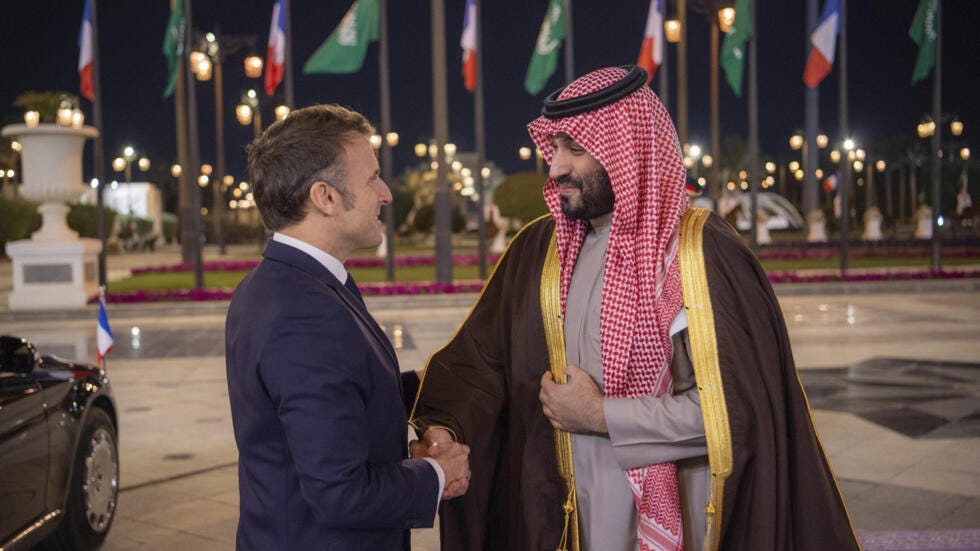GCC boosts EU trade to cement the IMEC
The United Kingdom (UK) and Saudi Arabia are nearing the finalisation of a Free Trade Agreement (FTA), while discussions continue on renewing negotiations for a comprehensive European Union (EU) and Gulf Cooperation Council (GCC) FTA. UK Prime Minister Keir Starmer is currently undertaking a multi-day visit to the region to strengthen this cooperation. In recent years, Saudi Arabia has made significant efforts to boost trade with the EU, spearheaded by Crown Prince Mohammed bin Salman (MBS), who has been travelling extensively to forge strategic partnerships within the bloc, with a particular focus on military and renewable energy deals. These developments reflect both the Kingdom’s and the broader GCC’s efforts towards economic diversification and the advancement of the India-Middle East-Europe Economic Corridor (IMEC).
GCC-EU Relations
Over the years, Saudi Arabia has built strong ties with several European countries, including the UK, France, Germany, Spain, and Italy, all of which play a vital role in supporting the country’s Vision 2030. In 2022, the EU introduced a new visa facilitation agreement with the GCC to streamline visa access for Gulf citizens, in return for boosting trade and cooperation. Last week, a French-Saudi strategic partnership was signed, with a press release highlighting "concrete cooperation and projects in every sphere." In the past month, these relations resulted in a €52.6 million contribution to the Centre Pompidou project in Paris, along with nine agreements focused on boosting cultural tourism in Saudi Arabia through the construction of museums. These efforts demonstrate the Kingdom’s broader diversification strategy aimed at enhancing the tourism sector and expanding non-oil trade. In the renewables sector, it was announced last week that French companies TotalEnergies and EDF Renewables secured 25-year power purchase agreements with the Saudi Power Procurement Company to develop three solar parks in Saudi Arabia.
The United Kingdom continues to be one of Saudi Arabia’s key European trading partners and is actively working to expand trade with both Saudi Arabia and the broader GCC, following the successful example set by other European countries like France. Historically, trade with the UK has been centred on arms deals, a significant aspect of Saudi Arabia's broader engagement with the continent. In addition to providing strategic military power against regional rivals like Iran and maintaining regime security, substantial arms transfers with the United States and other Western countries reinforce strategic alliances and secure crucial security guarantees. This trade sector has been strained due to frequent suspensions and bans on sales resulting from UK concerns over Saudi conduct in Yemen. However, over the past year, the UK, Italy, and Germany have gradually lifted these prohibitive measures in a clear effort to strengthen trade relations with the GCC.
Between Blocs
Trade with the European Union is integral to the Gulf’s IMEC vision, which seeks to bridge Eastern and Western markets through the region. This ambitious project will accelerate economic diversification efforts in the region through infrastructure projects such as railways, ports, and digital networks. The expansion of GCC economies also serves a more existential purpose: maintaining regime security. The ongoing regional conflict is expected to trigger a second Arab Spring, which could threaten the Gulf monarchies unless they ensure economic stability and security for their citizens. For the EU, the primary motivator behind engagement with IMEC is the enhanced trade security it offers, as it will help diversify supply chains and reduce dependence on traditional maritime routes, which are vulnerable to disruptions such as the Houthi attacks in the Red Sea.
Despite years of negotiations, the GCC, and the UAE in particular, have yet to secure significant Free Trade Agreements with the EU. These stalemates have contributed to strengthened BRICS engagement as the Council is not restricting itself to Western partners. The UAE, which gained membership in the bloc earlier this year, has been increasingly aligning with this alternative, China-led financial future, particularly as Asia has overtaken Europe as the GCC's largest trade partner. Yesterday’s finalisation of a Free Trade Zone Agreement between the UAE and the Eurasian Economic Union, which includes Russia and Belarus, is expected by 2025. This pragmatism demonstrates the Gulf’s strategic balancing of Eastern and Western interests.




